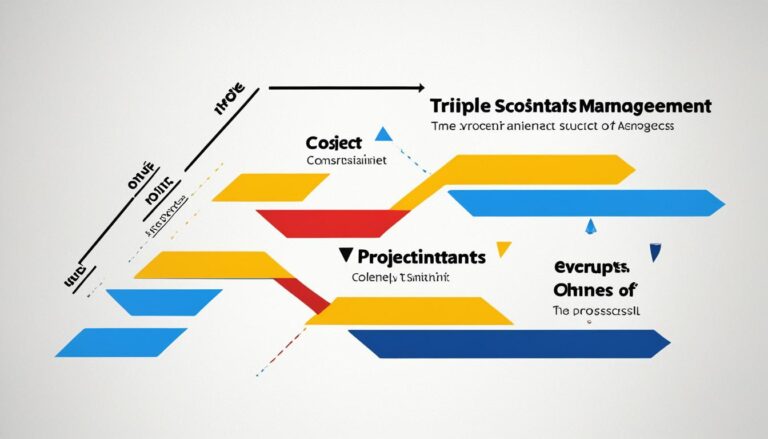Unlock Success with Time Management Training

“Time is the most valuable coin in your life. You and you alone will determine how that coin will be spent. Be careful that you do not let other people spend it for you.” – Carl Sandburg
In today’s fast-paced world, effective time management is the key to success. Many individuals struggle with juggling multiple responsibilities and tasks, often feeling overwhelmed and stressed. That’s where time management training comes in. It helps individuals develop the skills and strategies necessary to make the most of their time and achieve their goals.
Time management training goes beyond just managing schedules and to-do lists. It is a comprehensive approach that helps individuals prioritize tasks, delegate responsibilities, eliminate distractions, manage energy levels, and leverage technology effectively. By learning how to manage time more efficiently, individuals can reduce stress, increase productivity, and create a better work-life balance.
Whether you’re a busy professional, a student with a heavy workload, or an entrepreneur trying to grow your business, time management training can benefit everyone. It equips you with the tools, techniques, and mindset needed to achieve your goals, streamline your workflow, and make the most of every moment.
Key Takeaways:
- Time management training helps individuals prioritize tasks, delegate responsibilities, and eliminate distractions.
- Effective time management leads to reduced stress, increased productivity, and a better work-life balance.
- Time management training is beneficial for professionals, students, and entrepreneurs alike.
- It provides individuals with the tools, techniques, and mindset to achieve their goals.
- By managing time effectively, individuals can make the most of every moment and unlock their full potential.
What is Time Management Training?
Time management training is a transformative program designed to equip employees with the necessary tools and techniques to enhance their efficiency, productivity, and overall time management skills. Through a combination of practical strategies and actionable insights, time management training empowers individuals to optimize their workflow, prioritize tasks effectively, and achieve their goals in a timely manner.
At its core, time management training focuses on equipping employees with essential skills such as:
- Goal Setting: By setting clear and actionable goals, employees can align their efforts and prioritize tasks that contribute to their overall objectives.
- Prioritization: Time management training helps individuals identify and prioritize tasks based on their importance and urgency, ensuring that critical tasks are completed first.
- Time-Tracking: Utilizing time-tracking tools and techniques allows employees to gain awareness of how they spend their time, identify areas of improvement, and allocate their resources effectively.
- Task Delegation: Learning to delegate tasks and responsibilities to others enables employees to focus on high-value activities and avoid unnecessary overwhelm.
By implementing these time management techniques, employees can take control of their schedules, optimize their productivity, and achieve their professional and personal goals more efficiently.
Time management training can be customized to address specific organizational needs and challenges. Whether it’s improving collaboration, enhancing communication, or promoting work-life balance, a tailored approach ensures that employees develop the skills and habits that are most relevant to their roles and responsibilities.
Investing in time management training not only benefits individual employees but also drives organizational success. By equipping employees with the necessary tools and techniques, organizations can improve their overall productivity, meet deadlines consistently, and achieve their strategic objectives.

With the guidance and support of time management training, employees can unlock their full potential, maximize their performance, and experience greater job satisfaction. The impact of effective time management goes beyond the workplace, as individuals also enjoy improved work-life balance and reduced stress levels.
The Importance of Time Management for Employees
Strong time management skills are crucial for success in today’s competitive job market. Research shows that employees often spend a significant amount of their time on unproductive tasks, highlighting the need for effective time management strategies. By developing and honing these skills, employees can not only improve their productivity but also experience greater job satisfaction and reduce stress levels.
Effective time management allows employees to prioritize their tasks, allocate their time wisely, and focus on high-value activities. It enables individuals to make the most of their working hours and accomplish more in less time, leading to increased efficiency and productivity. Moreover, good time management skills help individuals meet deadlines, deliver high-quality work, and achieve their professional goals.
By managing time effectively, employees are also better able to balance their work and personal lives. They can avoid overworking, reduce stress, and create more time for activities outside of work that contribute to their overall well-being. Additionally, employees with strong time management abilities are better positioned to handle unexpected tasks or challenges that may arise during their workday.
Time management skills not only benefit individual employees but also have a positive impact on the entire organization. When employees manage their time effectively, it improves overall team productivity. It enables better coordination, collaboration, and communication within the team, leading to smoother workflow and improved outcomes.

Benefits of Effective Time Management for Employees:
- Higher productivity
- Reduced stress levels
- Improved work-life balance
- Meeting deadlines consistently
- Enhanced focus and concentration
- Increased job satisfaction
- Greater opportunities for career advancement
By investing in time management training and acquiring the necessary skills, employees can unlock their full potential, achieve their goals, and excel in their professional lives. Effective time management is not only a valuable asset for employees but also a key driver of organizational success.
Benefits of Time Management Training
Effective time management is the key to unlocking your full potential and achieving success in both your personal and professional life. By investing in time management training, you can reap a wide range of benefits that will enhance your productivity, reduce stress, and drive your success to new heights.
Enhanced Productivity and Efficiency
Good time management skills enable you to accomplish more in less time. By learning how to prioritize tasks, set goals, and manage your schedule effectively, you can maximize your productivity and make the most of every moment. Time management training empowers you with the strategies and techniques to eliminate distractions, streamline processes, and work smarter, not harder, resulting in increased efficiency and output.
Lower Stress Levels
One of the biggest advantages of effective time management is the reduction of stress. When you have a well-organized schedule and clear priorities, you can approach your work with a sense of calm and confidence. By avoiding procrastination and staying on top of deadlines, you can relieve the pressure of last-minute rushes and avoid the negative consequences of stress on your mental and physical well-being.
Improved Prioritization and Focus
Time management training equips you with the skills to prioritize tasks based on their importance and urgency. By understanding which activities contribute the most value, you can allocate your time and energy to high-value tasks that align with your goals. This improved focus allows you to make better decisions, produce higher quality work, and achieve greater results in your professional endeavors.
Positive Reputation and Increased Opportunities
When you consistently demonstrate strong time management skills, you build a reputation as a reliable and dependable individual. Colleagues and superiors will recognize your ability to meet deadlines, deliver quality work, and effectively manage your responsibilities. This positive reputation opens doors to new opportunities, such as promotions, challenging assignments, and increased recognition for your contributions.

Higher Retention and Engagement
Organizations that invest in time management training for their employees often experience higher levels of employee retention and engagement. When employees feel empowered to manage their time effectively, they are more likely to experience job satisfaction and a sense of control over their work. This, in turn, leads to greater engagement, improved morale, and increased loyalty to the organization.
In summary, time management training is a transformative investment that yields significant benefits for individuals and organizations alike. By mastering the art of time management, you can boost your productivity, reduce stress, improve your focus, and unlock a world of opportunities for personal and professional growth.
Top 5 Time Management Frameworks
When it comes to managing your time effectively, having the right frameworks can make all the difference. Here are five time management frameworks that can help you streamline your tasks, boost productivity, and achieve your goals:
Eisenhower Matrix
The Eisenhower Matrix, named after former U.S. President Dwight D. Eisenhower, is a simple yet powerful framework for prioritizing tasks. It involves dividing your tasks into four quadrants based on their importance and urgency. By focusing on tasks that are both important and urgent, you can make better decisions about where to invest your time and energy.
Pomodoro Technique
The Pomodoro Technique is a time management method developed by Francesco Cirillo. It revolves around working in short, focused bursts of time called “pomodoros,” typically 25 minutes long, followed by a short break. This technique helps you stay focused and avoid burnout, making it easier to tackle complex tasks and maintain productivity throughout the day.
Time Blocking
Time Blocking is a technique that involves scheduling specific blocks of time for different tasks or activities. By allocating dedicated time slots for tasks like email management, meetings, and deep work, you can better manage your time and ensure that important tasks get the attention they deserve. This framework helps minimize distractions and optimize your productivity.
80-20 Rule
Also known as the Pareto Principle, the 80-20 Rule states that roughly 80% of your results come from 20% of your efforts. By identifying the tasks that have the most significant impact on your goals and focusing on them, you can maximize your productivity and outcomes. This framework helps you prioritize your tasks based on their potential for impact.
Getting Things Done Framework
The Getting Things Done (GTD) Framework, developed by David Allen, is a comprehensive approach to task and time management. It involves capturing all your tasks, organizing them into actionable lists, reviewing and prioritizing them regularly, and taking action. The GTD framework helps you stay organized, reduce overwhelm, and increase your productivity.

By incorporating these time management frameworks into your daily routine, you can take control of your time, enhance your efficiency, and accomplish more with less stress. Experiment with different frameworks to find the ones that work best for you and tailor them to fit your unique needs and goals.
Knowing How You’re Spending Your Time: The Foundation of Time Management
Effective time management starts with having clarity on how you are currently spending your time. Conducting a time audit allows for a deeper understanding of where your time is being allocated and helps identify areas for improvement. By analyzing the data collected during the audit, you can uncover patterns and trends that may be affecting your productivity and overall time management.
During a time audit, track your activities and how much time you spend on each one. This can be done manually or with the help of time-tracking software or apps. Be sure to record even the smallest tasks and interruptions throughout the day. By gathering accurate data, you can make informed decisions about how to allocate your time more effectively.
Once you have completed the time audit, it’s time to analyze the data and identify areas where you can make improvements. Look for tasks or activities that consume a significant amount of time but contribute little value to your goals or priorities. These trivial tasks can be delegated, eliminated, or minimized to free up time for more important activities.
Prioritization plays a crucial role in effective time management. With a clear understanding of how you’re spending your time, you can distinguish between essential tasks that align with your goals and trivial tasks that can be deprioritized or eliminated altogether. By focusing on high-value activities and minimizing time spent on low-value tasks, you can maximize productivity and achieve better outcomes.
Regular Check-Ins and Reflection
To maintain effective time management, it’s important to regularly check in with yourself and reflect on your progress. Schedule regular time to review how you’re allocating your time and assess whether adjustments need to be made. This self-reflection allows you to stay focused and make necessary adaptations as your responsibilities and goals evolve.
| Benefits of Conducting a Time Audit | Actions for Effective Prioritization |
|---|---|
|
|
By regularly auditing your time, practicing effective prioritization, and reflecting on your progress, you can build a strong foundation for successful time management. These habits will empower you to make the most of your time, achieve your goals, and experience greater satisfaction in both your personal and professional life.
Conclusion
Effective time management skills are essential for achieving success and maintaining personal well-being. When time is mismanaged, it can lead to heightened stress levels, decreased efficiency, subpar work quality, and a tarnished reputation. However, with proper time management, you can unlock a range of benefits, including increased productivity, a positive reputation, reduced stress, and greater opportunities for success.
Time management training is a valuable resource that equips individuals with the skills and strategies necessary to effectively manage their time. Through tailored coaching and personalized approaches, time management training helps individuals prioritize tasks, eliminate distractions, delegate responsibilities, and leverage technology effectively. These skills empower individuals to make lasting changes that positively impact both their personal and professional lives.
By implementing effective time management techniques, you can optimize your productivity, streamline your workflow, and achieve a healthy work-life balance. Additionally, mastering time management skills enables you to make the most of your available hours, ensuring you focus on high-value tasks and maintain a sense of control over your schedule. With time management training, you can unlock your full potential and thrive in all aspects of your life.




